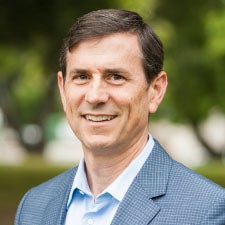
Earlier this year, Jill Hill went to her doctor at Chapa-De Indian Health in Grass Valley, a rural area east of Sacramento. She had been experiencing a prolonged depression, and that day she told him, “I just can’t seem to pull myself out of it.”
Like a lot of Americans, Hill’s family had struggled through the Great Recession. Five years later, her husband passed away. After enjoying a middle-class lifestyle most of her life, she found herself widowed and on Medi-Cal. She hadn’t been able to get counseling due, in large part, to the shortage of mental health professionals serving those on Medi-Cal in Grass Valley.
But not long after that visit, Hill started getting the care she needed through telehealth. Chapa-De is one of nine community health centers participating in the California Health Care Foundation’s Sustainable Models of Telehealth in the Safety Net initiative. Hill now goes to Chapa-De every Wednesday to talk live via video with a counselor in Sacramento.
The subsequent turnaround in her mental health and well-being exemplifies why CHCF invests in spreading telehealth in the safety net. Watch Hill tell the story in her own words:
I hope you’ll share her story as an example of the power of telehealth to connect Californians to the care they need, especially in rural areas.
Learn more about Sustainable Models of Telehealth in the Safety Net, including our partners, our approach, and new information we’ll be sharing as the initiative unfolds.
Authors & Contributors




